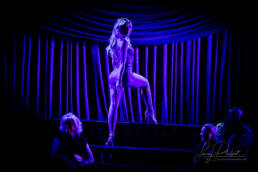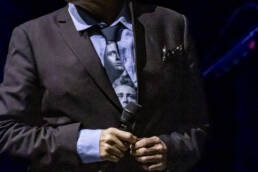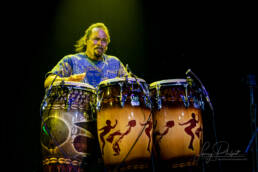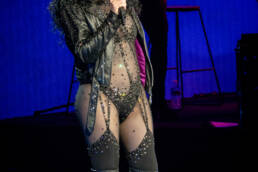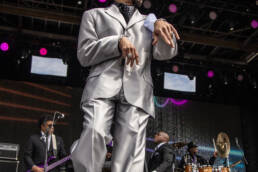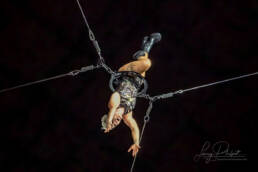Daryl Hall & John Oates: Philly Soul that Defined the 80s
I have at least five autographed albums by these two legends, have photographed them nearly every year since 2013, and am very sad that they’re no longer touring together.
The Spark That Lit the Fire
Picture two Philly kids in the late ‘60s, dodging a fistfight at a doo-wop show, only to find harmony in the chaos. For Daryl Hall and John Oates, music wasn’t just a dream—it was a lifeline. Hall, a choirboy turned soul fiend, grew up mesmerized by the Temptations’ glide. Oates, a folkie with a guitar slung low, caught the bug from AM radio’s twang. They met in 1967 at Temple University, ducking a gang scuffle at an Adelphi Ballroom gig. Backstage, they jammed—Hall’s silky tenor weaving with Oates’ gritty strum—and something clicked. “It was like finding a lost brother,” Oates later said. That electric jolt, born in a haze of Motown and mischief, pushed them to ditch college for a career chasing that sound.

The Men Behind the Mustache and Mane
Daryl Franklin Hohl, born October 11, 1946, in Pottstown, Pennsylvania, was a preacher’s grandson with a voice like liquid gold. Raised on Philly’s R&B streets, he sang in church, then hustled as a session player, backing legends like Smokey Robinson. John William Oates, born April 7, 1948, in NYC but bred in North Wales, PA, was a wiry kid with folk roots, picking guitar ‘til his fingers bled. Both landed at Temple, crossing paths amid soul 45s and campus gigs. Philly’s grit shaped them—Hall’s towering frame and Oates’ curly mop became icons. Joni Mitchell, their Laurel Canyon contemporary, drifted into their orbit—not a lover, but a kindred spirit whose folk finesse sharpened their edge.
The Career That Owned the Airwaves
Daryl Hall & John Oates—no band, just a duo—kicked off in 1972 with Whole Oats, a folk-soul tease. Signed to Atlantic, then RCA, they hit stride with Abandoned Luncheonette (1973), but Private Eyes (1981) and H2O (1982) made them MTV kings. No rotating lineup—just Hall (vocals/keys) and Oates (guitar/vocals), backed by studio aces like G.E. Smith (guitar) and Charlie DeChant (sax). Early on, Hall cut sides with Gulliver (a ‘69 flop with Tim Moore), while Oates strummed in local acts. Solo, Hall dropped Sacred Songs (1980), Oates Phunk Shui (2002). Together, they ruled the ‘80s—blue-eyed soul with a pop gloss.
Bandmates: No fixed band, but Hall and Oates leaned on Smith’s riffs and DeChant’s wails for their live punch. Joni Mitchell crossed their path in ‘73—Hall, awestruck, sang backups on her Court and Spark sessions, calling her “a harmonic genius.” She didn’t join them onstage, but her Laurel Canyon vibe seeped into War Babies (1974), which Hall dubbed “our Joni phase.” Relationships: Hall’s fling with Sara Allen birthed hits; Oates stayed low-key. Todd Rundgren produced War Babies, sparking a lifelong bond—Hall guested on Todd’s Nearly Human (1989).
TV/Film: Live Aid (1985) showcased them with Eddie Kendricks; Hall voiced The Cleveland Show (2010). Their Live from Daryl’s House web series (2007-) became a cult hit. Awards: No Grammys, but 20 million albums sold—H2O 4x platinum—and a 2014 Rock and Roll Hall of Fame nod cemented their reign.
Big Songs: “Rich Girl” (Hall, 1977)—a sassy jab at an ex’s boyfriend. “Maneater” (Hall/Oates/Sara Allen, 1982)—a slinky, predatory bop. “I Can’t Go for That (No Can Do)” (Hall/Oates/Allen, 1981)—a funky groove Michael Jackson swiped for “Billie Jean.” “Private Eyes” (Hall/Oates/Warren Pash/Janna Allen, 1981)—a clap-along stalker anthem.
The Shadows That Followed
Hall and Oates dodged the sex-and-drugs headlines, but cracks showed. In 1985, Hall’s Lyme disease diagnosis—caught from a tick bite—halted tours; he hid the pain, but Oates later called it “a silent killer.” Their ‘90s slump—Marigold Sky (1997) flopped—fueled breakup buzz. The real storm hit in 2023: Hall sued Oates over a plan to sell their joint catalog share to Primary Wave Music. Court filings flew—Hall claimed betrayal; Oates said it was “business, not personal.” Fans reeled: was this the end? Legal battles dragged into 2025, with Hall’s restraining order against Oates making tabloids. Joni, ever the observer, stayed mum, though Hall once mused she’d have “sung us through it.” The duo’s soul survived, but the scars lingered—harmony strained, yet unbroken.


